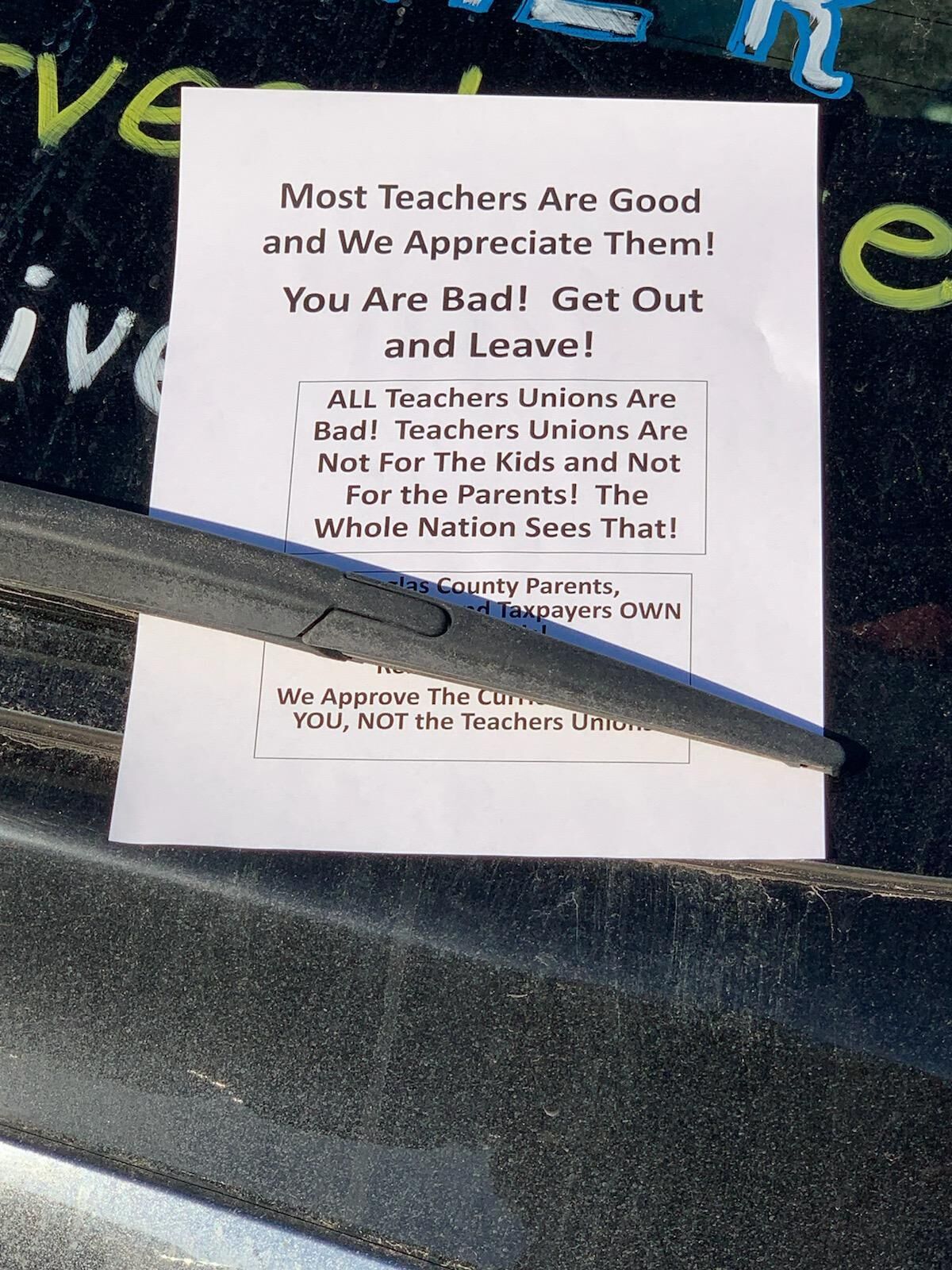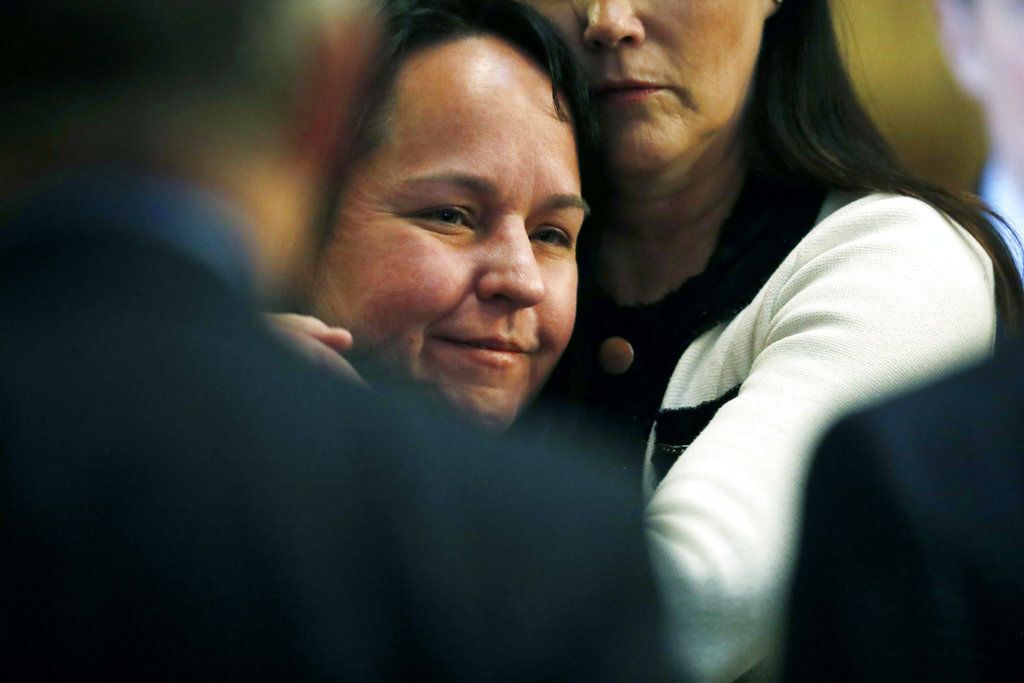Bill advances to protect Colorado educators from doxxing

The Colorado legislature is pursuing a bill to protect educators from doxxing, two months after the identities of hundreds of Douglas County teachers faced potential exposure after participating in a protest.
If enacted, Senate Bill 171 would add educators to the list of people who can request to have their personal information removed from government websites after they or their family receive threats to their safety. Personal information includes home addresses, phone numbers and email addresses.
“We want to make sure we pass this bill before something truly horrific happens here in this state,” said bill sponsor Sen. Jeff Bridges, D-Greenwood Village. “The threats our teachers face came into sharp focus a few weeks ago in Douglas County.”
The Senate Education Committee advanced the bill in a 6-1 vote Thursday, sending it to the full Senate for consideration. The vote came after over an hour of public testimony, mostly from educators from the Douglas County School District.
Kathy Dorman, who recently retired after 37 years teaching at Ponderosa High School, helped organize a sick out in support of former Superintendent Corey Wise, after he was fired in a controversial move by the new school board. Afterwards, some teachers who participated in the protest found fliers on their cars telling them to “get out and leave.” An unknown person also made a records request for the names of the 1,500 teachers absent on the day of the protest, which would have exposed their identities.
“It shocks me that I and my fellow educators are subject to intimidation and threats for standing up to the policies and principles that are at the core of our hearts,” Dorman said. “Worried that someone is going to follow me home when they see me get into my car and find out where we live. That’s terrifying.”
Doman said her daughters feared for her safety and worried about her speaking at Thursday’s meeting. During the Douglas County Equity Advisory Council meeting the night before, three speakers called on Dorman to step down as a member-at-large of the advisory group. Dorman had to be escorted to her car by security at the end of the night.
Dorman said the future of public education in Colorado is at stake, adding that many teachers are leaving due to the kind of harassment she encountered. She said threats result not only from political protests, but also from enforcing face mask mandates or teaching about evolution and equity.
A survey of the 39,000 members of the Colorado Education Association found that nearly 67% of the educators are considering retiring or resigning at the end of this school year. This comes as Colorado and the nation have been experiencing a teacher shortage exacerbated by the COVID-19 pandemic.
“If that isn’t a red flag that our educators need help and protection, I don’t know what is,” said Amie Baca-Oehlert, president of the Colorado Education Association. “I often get emails, sometimes on a daily basis, from educators across the state (about being doxxed).”
In addition to providing privacy protections for educators, the bill would update Colorado’s open records law to prohibit the public from accessing the specific dates an educator is absent from work. Under the bill, the total number of days absent would still be open to the public, but not the dates.
This part of the bill was added in direct response to the records request that asked for the names of the Douglas County teachers absent on the day of the sick out, Bridges said. The district initially agreed to release the names of the teachers who took off work, though it later decided against doing so and said the request had been withdrawn.
Monument Republican Sen. Paul Lundeen – the only committee member to vote against the bill – said he opposed the bill because of this provision.
“When individuals choose to, as a political statement, sick out … why should that be hidden? Why should that be protected?” Lundeen asked. “Hiding what is clearly a political act is inappropriate. … Political speech needs to be open.”
The majority of the school district’s board questioned the superintendent’s role in creating masking policies and in the district’s decision in October to sue other county authorities to keep those mask rules in place. The board’s minority members countered that the decision to fire Wise is disastrous, warning it would lead to educators leaving the district and to “the Dark Ages.”
During Thursday’s meeting, Lundeen described the fliers placed on the Douglas County teachers’ cars as “political communication,” not specific threats. He also questioned “where do we draw the line” in expanding privacy protections, saying teachers would be the prime candidates to stand their ground and turn around the “coarsening” interactions of society.
The other committee members said they cannot allow a culture of intimidation to continue in Colorado.
“This rhetoric has to stop,” said Sen. Janet Buckner, D-Aurora. “Even today, all of us who are speaking here will probably get death threats because of our stand. … This should not be a political issue. This should be a human rights issue.”
Other professions, including peace officers and public defenders, already enjoy privacy protections in Colorado. Last month, House Bill 1041 was signed into law to also add health care workers, code enforcement officers, child representatives and animal control officers to the list.
The Denver Gazette reporter Carol McKinley (carol.mckinley@gazette.com) contributed to this report.














